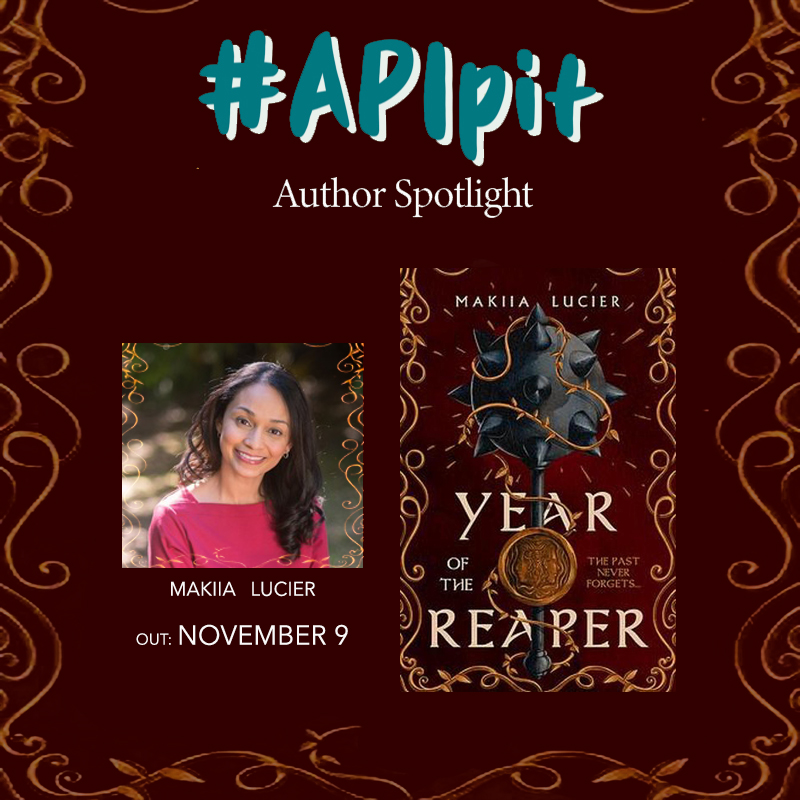Makiia Lucier

What inspires you to write? Where do you get your ideas?
Each book I write is a collection of things that happen to fascinate me at a particular time. With A Death-Struck Year, for example, it was the Spanish Flu pandemic of 1918. With Isle of Blood and Stone and Song of the Abyss, my interest had shifted to medieval mapmakers and explorers. Many story ideas come from researching these topics in-depth (by reading non-fiction, watching documentaries, studying old paintings, visiting museum collections online).
Tell us about your book.
Year of the Reaper is a young adult fantasy inspired by the Black Death of the 14th century. In the aftermath of a devastating plague, a young lord is determined to discover the truth behind a mysterious attempt to assassinate the new queen.
What advice do you have for aspiring writers & creators?
Besides writing and reading, I think it’s important to keep your eyes on your own work. Everywhere you look, someone is signing a book deal, signing deals for multiple books, while you’re just a chump with a half-finished draft and little else. It’s easy to become discouraged. Keep your head down. Keep writing. Finish your story. For most people, writing a good story takes time and patience and a little faith.
How do you weave your culture(s) into your book(s)? How do(es) your culture(s) influence your writing?
I grew up on the Pacific island of Guam, and weaving elements of my childhood into Isle of Blood and Stone was important to me. Readers from back home will, I hope, recognize many things: the food, the character and place names, even the map at the front of the book (it depicts the fictional island kingdom of St. John del Mar but it is the exact same shape as Guam).
What is your writing process like?
I write most of my work longhand, just a notebook and pencil, and then enter everything into Word to send off to my editor. When it’s time to revise, I’ll print off a hard copy and edit that way. I’ve tried writing directly onto a laptop, it seems much more efficient, but my brain just freezes. So I stick with the process that works for me.
What are you currently reading?
Winterkeep by Kristin Cashore.
What was your last binge-read?
Strange the Dreamer by Laini Taylor.
What’s your favorite part of the writing process? Your least favorite part? Why?
My favorite part is the writing. The first draft, the sixth draft, messing around with different scenes and possibilities, spending a ridiculous amount of time trying to perfect a single paragraph. Even when it’s hard, the writing is what I love best.
What superpower would you like to have?
I read somewhere that Stephen King writes two drafts and a polish and that’s it. His book is done. I would like this superpower. (Isle of Blood and Stone took nine drafts to write).
How long on average does it take you to write a book?
Six months to a year for a first draft. At least another year to revise, copy edit, etc.
How do you deal with critiques of your work?
It can be difficult to hear criticism, and the first revision letter from an agent or editor can feel overwhelming (so many things to fix!). But I remind myself that these criticisms are made to help me become a better writer, a better storyteller. And it’s important to be open to feedback while also trusting my instincts when a suggestion does not feel right.
If you went on a desert island and could only bring two things, what would you bring?
This feels like a good time to bring an extremely long book I’ve been meaning to read for years and years (like Shakespeare’s Complete Works, or a really thick sci fi/fantasy anthology). I would also bring sunblock. Skincare Is important.